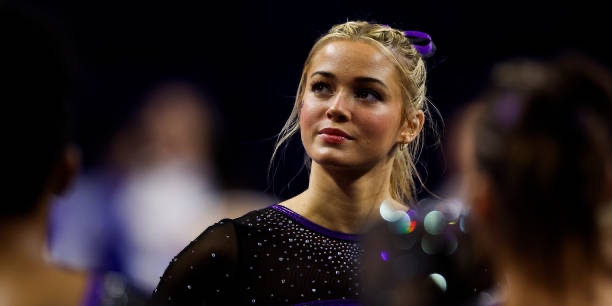As a self-proclaimed adventurous eater, I'd always considered myself equally comfortable with a...
A Little More Beauty to the Game and a Little Less Talent

When did the look of a woman contribute to the amount of success she would have on a sports field? The recent increase in Name, Image, and Likeness deals resulted in both excitement and concern in the constantly evolving environment of collegiate sports.
Although recognized as a beneficial move toward athletes' independence, it has also revealed a darker side, especially concerning the objectification of women.
Women take advantage of their looks as leverage to obtain NIL deals. This is a risk to the fundamentals of equal competition and the values that Neumann University and other similar schools stand for.
Undoubtedly, NIL has altered the recruiting scene by placing a greater value on physical attractiveness and social media presence than on raw talent. The rise of female athletes who use their physical appeal for attention and profitable sponsorships is proof of this change.
These individuals are often chosen for their marketability rather than their athleticism. Neumann University's core values of integrity and fairness are in direct opposition to such behavior.
The widespread use of social media, which acts as a platform for promotion and an excuse for objectification, contributes to the situation. College athletes especially women often share suggestive pictures online because they know it will attract attention and lead to financial gains.
This is a worrying tendency because it turns athletes into assets whose worth is mostly based on how they appear rather than their ability to perform on the field.
Take, for instance, the case of Livvy Dunne, whose NIL deal depends more on attractiveness than skill.
Dunne has a substantial following on TikTok, and the majority of her videos consist of her wearing a bikini, a leotard, or very little at all. Male viewers make remarks about her body and appearance in the comment sections of the majority of her videos.
Additionally, one of her NIL deals is with the activewear company Vuori, where she frequently, if not always, appears in minimal workout attire while posing and positioning herself to draw attention to particular areas of her body.
With a total net worth of $3.5 million, she is the highest-paid NCAA female athlete since NIL entered the sports market in July 2021.
The legitimacy of collegiate athletics is compromised when the amount of money and attractiveness is prioritized over skill, in addition to feeding negative stereotypes.
A growing number of respectable media outlets, including The Washington Post, Forbes, and Sports Business Journal, have highlighted the worry over the role that sex appeal plays in NIL negotiations.
The notion that a NIL agreement would use and abuse women's bodies to gain greater notoriety bothers me as a female collegiate athlete. Women have long struggled for credibility as athletes, the objectification facilitated by NIL deals undermines that.
NIL gives athletes possibilities, but it also makes inequalities worse, especially for women. Setting priorities for beauty over substance and promoting gender stereotypes are the results of placing a high value on looks rather than talent in the sports culture.
At Neumann University, the idea of female athletes utilizing their bodies to advance their names would be intolerable. The University takes pride in promoting a culture that values integrity, respect, and equality.
Neumann believes that athletes should be honored for their accomplishments and abilities rather than for how they look. It upholds the principles that make our community unique by placing a high importance on character and talent.
We have to constantly be on alert for behaviors that threaten the integrity of the game as collegiate sports continue to evolve. Although the NIL gives athletes access to previously unattainable opportunities, equality and fairness should not be compromised as a result.
It is the responsibility of schools such as Neumann University to protect such ideals and make sure athletes are assessed on their skills rather than appearance.
The growing trend in NIL conversations to place more emphasis on appeal than ability is concerning and contradicts the basic principles of universities.
We have to address this problem directly and highlight our commitment to collegiate sports' values of fairness, honesty, and dignity. Only then can we ensure that athletes are respected for their ability and contributions, not just their beauty.




